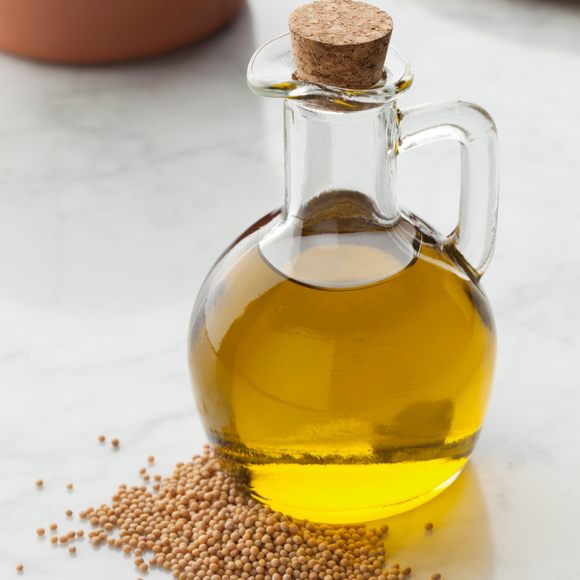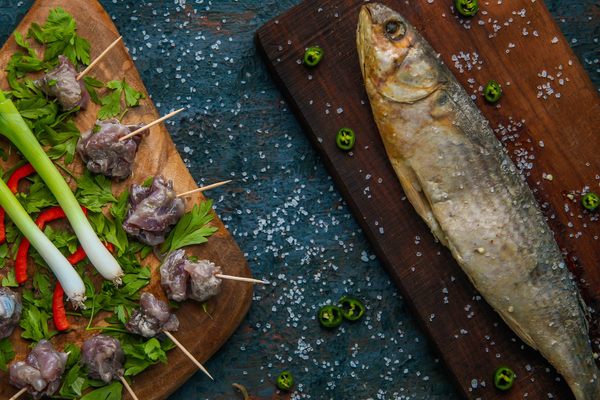Ingredients & Condiments
Mustard Oil
Essential to South Asian cuisine, the flavoring is illegal in some countries.
Mustard oil, made from the pressing or grinding of mustard seeds, is an essential cooking ingredient in South Asian kitchens. It’s particularly popular in eastern India and Bangladesh, where chefs use it to add a horseradish-like kick to vegetable dishes and curries.
The oil has a piercing aroma that stings your nose (the same way consuming a whole-grain dijon mustard spread would). While the flavor can be strong, it doesn’t linger.
Although the oil is crucial to multiple cultures’ cuisines, it’s banned in certain countries. Thanks to elevated levels of erucic acid, which has been shown to cause heart problems in animals, mustard oil is illegal in the United States. However, since there have been no studies on humans, it hasn’t been confirmed if these erucic acid levels are harmful to people. So most diners continue to enjoy the zingy ingredient in the United States.
And just how do they access mustard oil if it’s been banned? Chefs have discovered a handy loophole: Mustard oil can be legally sold as massage oil. All one has to do is disregard the “For External Use Only” label.
Where to Try It
-
Neerob at Pak Sun Halal Chicken
2160 Westchester Avenue, Bronx, New York, United StatesThis Bangladeshi restaurant in the Bronx features the zing of mustard oil in multiple dishes.
Written By
 ximenalarkin
ximenalarkin














